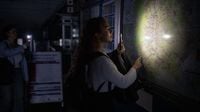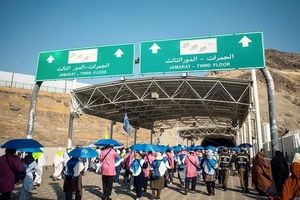On April 28, 2025, a massive blackout struck Spain and Portugal, plunging millions into darkness and causing widespread disruption across the Iberian Peninsula. The blackout began at 12:30 PM MESZ, affecting not only Spain and Portugal but also parts of southern France and the small principality of Andorra.
The Spanish electricity grid operator, Red Eléctrica, confirmed that plans to restore power were immediately put into action. By the afternoon, power had been restored in several areas across the north, south, and west of Spain, although the full recovery might take longer. "It could take six to ten hours to restore complete power supply," stated Red Eléctrica.
In Portugal, the grid operator REN reported that the outage was caused by a disturbance in the Spanish power grid, which was linked to a "rare atmospheric phenomenon." The Portuguese side indicated that full normalization of the grid could take up to a week due to the complexity of the situation.
Meanwhile, Spain's national cybersecurity authority, INCIBE, began investigating whether a cyberattack was behind the blackout. However, EU Council President António Costa reassured the public via social media that there was currently no evidence to suggest a cyberattack was involved.
As the blackout unfolded, chaos ensued. In Spain, public transport systems ground to a halt, including trains and subways. The Spanish railway company Renfe reported that all trains had stopped at 12:30 PM, and many airports faced significant operational challenges. Passengers at Madrid's airport were advised to check with their airlines due to potential travel disruptions.
Julia S., a resident in Portugal, described the scene: "Everything has stopped. There’s traffic chaos. We can’t even make coffee or drive our cars because the garage doors are electric. We have no internet. It’s chaos!" Traffic lights failed across the region, leading to extensive traffic jams as police attempted to manage the flow.
The blackout even interrupted the Masters-1000 tennis tournament in Madrid, where a match between Grigor Dimitrov and Jacob Fearnley was halted while the players were at 6-4, 5-4. Fans and players alike were left waiting as the situation unfolded.
In response to the crisis, Spain's Prime Minister Pedro Sánchez convened an emergency meeting with Red Eléctrica to assess the situation. The Nuclear Safety Council of Spain reported that the reactors of the three operational nuclear power plants in the country were safely shut down and were being cooled by emergency diesel generators.
While the situation in Spain and Portugal was dire, the Federal Network Agency in Germany provided reassurance that the power supply in Germany remained stable. Klaus Müller, the agency's president, stated, "A large-scale, long-lasting blackout is unlikely in Germany." He emphasized the robustness of the German electricity system, which is designed with multiple safeguards and redundancy to prevent such failures.
Reports from the BBC suggested that extreme temperature fluctuations in Spain had disrupted high-voltage lines, causing unusual vibrations that prevented synchronization within the power systems. This led to a frequency drop in the European interconnected grid around 12:32 PM, forcing Spain and Portugal to disconnect from the rest of the grid.
Despite the chaos, the European interconnected grid remained stable overall, with operators working diligently to restore power. The French grid operator RTE announced that it would assist Spain in restoring voltage, while Portugal began its own recovery efforts.
As the situation developed, the Federal Office for Civil Protection and Disaster Assistance (BBK) in Germany reiterated that large-scale power outages were very unlikely, and the country was well-prepared for emergencies. Hospitals in Germany are equipped with emergency power systems capable of sustaining operations for at least 24 hours during a blackout.
Experts have pointed out that while the Iberian Peninsula experienced a significant disruption, the interconnected nature of Europe’s power grid offers a buffer against such events. Dirk Witthaut from the Jülich Research Center speculated that extreme weather could have contributed to the outages, although the exact cause remains under investigation.
The incident has reignited discussions about energy infrastructure in Europe, particularly the connections between Spain and France. Historically, these connections have been viewed as weak, which exacerbated the impact of the blackout. Calls for stronger interconnections have been ongoing, especially as Spain seeks to increase its renewable energy exports.
As power slowly returns to the Iberian Peninsula, the focus will shift to understanding the causes of this unprecedented blackout and ensuring that such a situation does not recur in the future. The resilience of energy systems across Europe will be tested as lessons are learned from this event.





